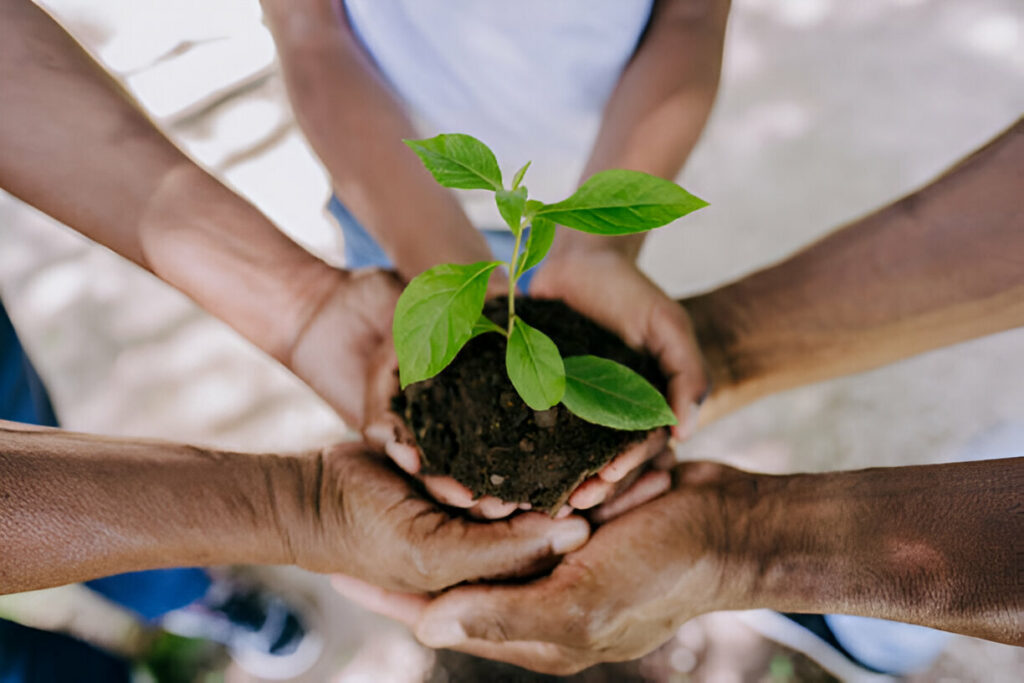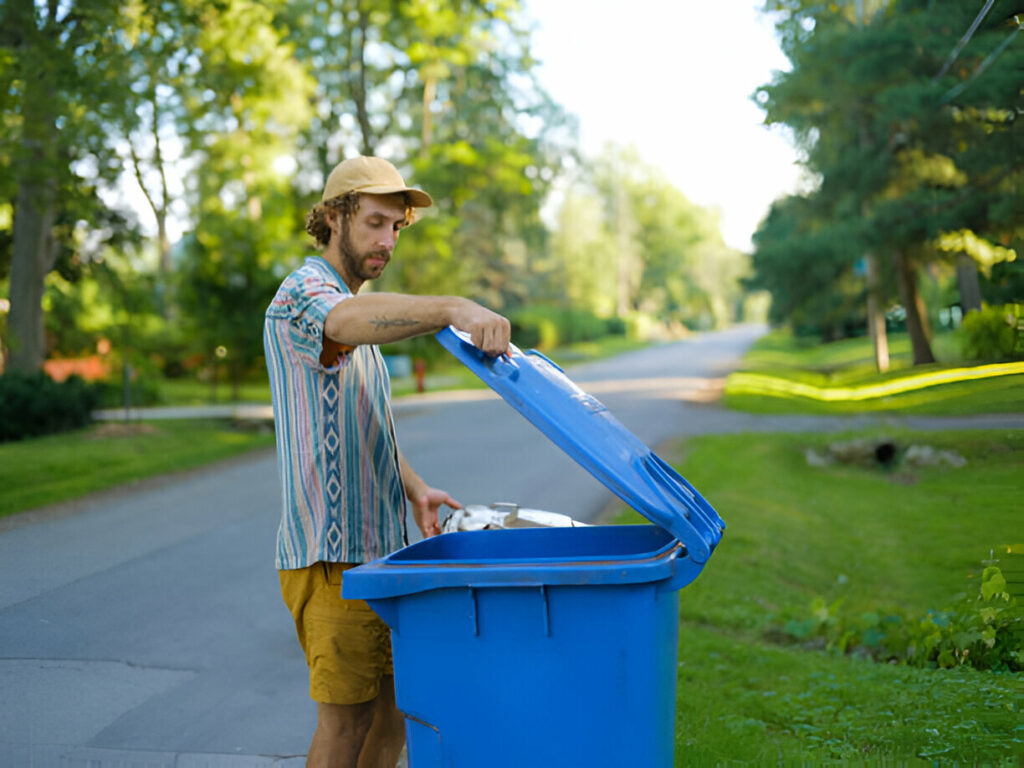by Nnyema Benson
The world is changing, and it’s impossible to ignore the growing need for more sustainable practices in our everyday lives. From climate change to the global waste crisis, our environment is crying out for help. But here’s the good news: you don’t need to overhaul your entire life to make a meaningful impact. Sustainable living is about adopting small, conscious habits that collectively lead to significant change.
In this post, we’ll explore actionable ways you can incorporate sustainability into your routine—without feeling overwhelmed. Whether you’re an entrepreneur balancing a busy schedule, a writer working from home, or a creative professional chasing your passion, there’s always room to live more sustainably.
What Is Sustainable Living?
Sustainable living means making choices that reduce your environmental footprint and preserve the planet for future generations. It’s about being mindful of how your actions affect the environment and striving to minimize waste, conserve resources, and support eco-friendly practices.
But sustainability isn’t just about going green—it’s also about creating healthier lifestyles, saving money, and fostering a better sense of community.

Why Does It Matter?
Let’s face it: the planet’s resources are limited. If we continue consuming at our current rate, we’ll exhaust many of them in the not-too-distant future. Sustainable living not only helps the environment but also empowers individuals to take control of their choices, leading to a better quality of life.
Think of it this way: by making small changes today, you’re investing in a brighter future for yourself, your loved ones, and generations to come.
1. Reduce, Reuse, Recycle
Let’s start with the basics. You’ve probably heard this mantra before, but how often do you put it into practice?
- Reduce: Be intentional about what you consume. For instance, switch from single-use plastics to reusable alternatives like stainless steel water bottles or cloth shopping bags.
- Reuse: Before throwing something away, think about how you can give it a second life. Old jars can become storage containers, and worn-out clothes can be turned into cleaning rags.
- Recycle: Learn the recycling rules in your area and ensure your waste is sorted properly. Recycling conserves resources and prevents unnecessary landfill waste.
2. Be Energy Conscious
Energy consumption is one of the biggest contributors to climate change. Reducing your energy use doesn’t mean sacrificing comfort—it’s about being smart with your choices.
- Switch to LED bulbs, which use less energy and last longer.
- Turn off lights, fans, and electronics when not in use.
- Opt for energy-efficient appliances, even if they cost a bit more upfront. They save money in the long run.
- In colder months, layer up instead of cranking the heater, and in warmer months, use natural ventilation or ceiling fans to stay cool.

3. Practice Sustainable Eating
What you eat matters more than you think. The food industry, especially meat production, is a significant contributor to greenhouse gas emissions.
- Incorporate more plant-based meals into your diet. You don’t have to go vegan—just swapping one or two meat-based meals a week can make a difference.
- Support local farmers and markets. Buying locally reduces transportation emissions and supports your community.
- Avoid food waste by planning meals, storing food properly, and repurposing leftovers creatively.
4. Rethink Your Transportation
Transportation is another major contributor to carbon emissions. Luckily, small changes can go a long way.
- Carpool, use public transport, or cycle whenever possible.
- Combine errands to reduce the number of trips you take.
- If you’re in the market for a new car, consider a hybrid or electric vehicle.
- For shorter trips, walking is a win-win: good for the planet and your health.
5. Adopt a Minimalist Mindset
Minimalism is about focusing on quality over quantity and buying only what you truly need. This approach not only reduces waste but also saves money and declutters your life.
- Before purchasing anything, ask yourself: Do I need this? Will I use it often? Can I borrow or rent it instead?
- Choose products with minimal packaging or opt for packaging-free stores.
- Donate or sell items you no longer use instead of tossing them out.
6. Support Sustainable Brands
Where you spend your money matters. Support companies that prioritize ethical practices, sustainable materials, and fair wages.
- Look for certifications like Fair Trade, Organic, or B-Corp when shopping.
- Avoid fast fashion and invest in quality clothing that lasts longer.
- Research brands before buying to ensure they align with your values.
7. Conserve Water
Water is one of our most precious resources, yet we often take it for granted.
- Fix leaks and drips promptly.
- Turn off the tap while brushing your teeth or washing dishes.
- Install water-saving devices like low-flow showerheads and dual-flush toilets.
- Collect rainwater for gardening or outdoor cleaning.
8. Get Involved in Your Community
Sustainable living isn’t just about individual actions—it’s also about collective effort.
- Participate in local clean-up drives or tree-planting events.
- Advocate for eco-friendly policies in your community.
- Share your knowledge with friends and family to inspire them to make changes, too.
9. Educate Yourself and Others
The more you know, the better equipped you are to make sustainable choices. Follow environmental blogs, watch documentaries, and stay informed about global environmental issues.
Share what you learn with others, whether it’s a tip about reducing waste or a new eco-friendly product you’ve discovered. Knowledge is power, and together, we can create a ripple effect of positive change.
10. Celebrate Progress, Not Perfection
Sustainable living isn’t about being perfect—it’s about doing what you can with what you have. Celebrate your wins, no matter how small they seem. Maybe you remembered to bring your reusable bag to the store or switched to a bamboo toothbrush. Every step counts.
Final Thoughts
Sustainable living is a journey, not a destination. The key is to start where you are and build habits that align with your lifestyle. By making intentional choices today, you’re contributing to a healthier planet tomorrow.
Remember: you don’t have to do everything at once. Pick one or two tips from this list and start there. Over time, these small changes will add up, creating a more sustainable and fulfilling way of life.






